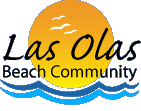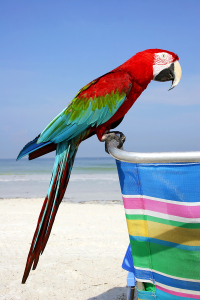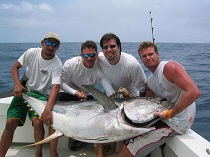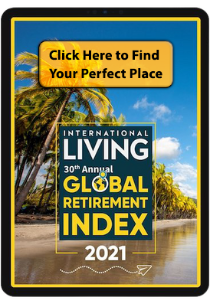F.A.Q
The Most Frequently Asked Questions
Las Olas Beach Community
We have compiled a list of some of the most Frequently Asked Questions regarding relocation to Costa Rica. Please contact us if you have any further questions or concerns. We will be happy to provide as much information and help as we can to make your life in paradise a reality!
What are the advantages of living in Costa Rica as opposed to other Central American countries?
Costa Rica is home to one of the oldest democracies in the Americas. The country has been noted for its friendliness and preoccupation with peace. Its policy of active neutrality has twice earned it the nomination for the Nobel Peace Prize. In 1987 this prestigious award was presented to then-president of the Republic Dr. Oscar Arias. The fact that over a quarter of its territory enjoys protection in the ever-growing network of national parks and reserves, its continued dedication to environmental protection, and many other reasons answer why Costa Rica has repeatedly been referred to as the Switzerland of the Americas. The economy is the most stable in the region and the standard of living ranks amongst the highest in Latin America. Everyone is free to own property and pursue an education and good job. Higher education is readily available in state and private institutions.
You hear so much about Costa Rica, what is the lure of Costa Rica?
The cost of living is 1/3 that of the U.S. Low taxes, low labor cost, and low cost of fresh fruits and vegetables all year. Real estate is still a bargain. Medium temperatures are 76 degrees year round. No hurricanes, tornadoes or raging fire storms. No draught problems, plenty of water, it's a rainforest. Over 100,000 Americans living in Cost Rica. The dollar is still a value here unlike in Europe. Long term stable democratic government, no military and the people are very friendly. No war on terror in Costa Rica, just Pura Vida!
Are there any restrictions on buying property in Costa Rica as a foreigner?
No. You can buy property in Costa Rica just like you buy property in the United States. For the most part it's fee simple and you get deeded property. There is one exception and that is property that is within 150 meters from the ocean. Most all of this property is owned by the municipalities who then grants concessions to individuals and corporations for 25 years and then it's automatically renewable.
Is buying land in Costa Rica a good investment?
Yes. One of the best investments you can make is buying Beach Front property in a popular resort. Think about it, only a very small part of land in the world is on a nice beach. Since this is where people want to be you can put your home in a rental pool and make a nice yearly return on your investment. The best part is that it's an investment that you can control and also use for vacations and retirement.
Can you get bank loans for buying property in Costa Rica?
Yes. Up until a couple of years ago that service was not available to US and Canadian citizens. However, Scotia Bank led the way in loaning money to US and Canadian citizens for real estate purchases in Costa Rica. Other banks are following suit and now the Bank of Costa Rica, Banco National and HSBC Bank are also making loans to foreigners.
I'm planning to retire to Costa Rica. Which coast is better?
Personal preferences aside, most people choose the Central Pacific Coast which is the 50 miles stretch from Jaco Beach to Manuel Antonio. This area has it all from rain forest, canopy tours, white water rafting, fishing, golfing, and of course the best beaches in Costa Rica. The Guanacaste area is popular as well, but is much drier and more arid and does not have the rain forests and other activities that you have in the Central Pacific Coast. This area is also experiencing a great growth along with the new airport in Liberia.
I am interested in the process of taking up residence in Costa Rica. I understand that a guaranteed income is necessary?
To qualify for either the pensionado or rentista residency status, one must have a guaranteed income (see Living Legally in Costa Rica in the Cocori Library). To qualify for residency under the inversionista rules, a feasibility plan must be approved by both the Costa Rica Tourist Board (ICT) and the Center for the Promotion of Exterior Commerce (PROCOMER). If an investment is to be made in certain "key" segments--tourism, special agricultural products, etc.--it need not be more than US$50,000. For general investment the figure is US$200,000. Visit the Cocori Library for more about Starting a Business in Costa Rica.
I am considering retirement in Costa Rica. I am divorced and have a seven year old daughter. My monthly income if I retire in the next year will be US$2,200 to $2,500 per month. Excellent schooling is a priority for my daughter. Will we be able to live comfortably and provide proper schooling on this income?
Yes, you could live very comfortably here for that amount, especially if that is unencumbered income, i.e. no rent, car payment, etc. Schooling for your child would be no problem.3
I'm planning to buy a house and become a rentista in Costa Rica. Can I open a bank account in Costa Rica without living there? I'd like to go there for a visit before my move, open an account and start making monthly deposits while I get ready to move.
The banks here will accept new accounts from just about anyone. You do not have to live here to have an account. And with Costa Rica's new banking laws, you can now open an interest bearing checking account in dollars. However, in Banco National and Banco Uno you can open an account also in Euros. With what is happening to the dollar you may want to put some money in Euros to protect yourself against further devaluation of the dollar. Also with Banco Uno you can also wire funds to the US or anywhere in the world via the internet and there is no charge. Hard to believe, but it's true. CitiBank just bought Banco Uno and we don't know how long that practice will continue.
Can you bring money into the country easily?
You can bring money in, but it's not as easy as it is in the US. In Costa Rica they want to make sure that the source of the funds is from a legitimate source. So you will need to prove the source of the funds. Also when you deposit a check they may want details about that check. It usually takes about 20 days to clear a foreign check in a Costa Rica bank, 3 days with a local check. It is a little bit more difficult in that respects, but on the other hand, they don't have problems here with sub-prime loans.
Can I buy a business and run it in Costa Rica without getting a residency visa?
Yes, if you make an investment in a business in Costa Rica you can run that business without getting a residency visa. However, you cannot legally work for a company here without getting your residency.
I own a house in Costa Rica and want to sell it, what taxes do I have to pay?
Zero. Costa Rica does not have a capital gains tax and they do not have taxes on passive income, so you pay no taxes on the sale of property, unless you are in the business of selling property say in a project. You will not pay any taxes on savings, CD's or profits on stock and bonds earnings. We recommend checking with your CPA with regards to your U.S. tax liabilities.
When we move to Costa Rica how much will we have to pay in taxes on our household goods?
Import duties vary with the age of the imported goods and their condition. Used computers, appliances and TVs, etc. usually enter for around 15% of their declared value. However, Costa Rica just approved in the new CAFTA treaty so soon duties will be a thing of the past.
I have heard that one can obtain the rentista or pensionado status by depositing a sum of money in a Costa Rican bank. Is this true? If so, how much needs to be deposited?
Yes, you can deposit US$60,000 for a period of five years with BICSA (Banco Internacional de Costa Rica, S.A.).
We want to bring our pets with us when we move to Costa Rica. What restrictions are there?
Bringing domestic pets into the country is quite easy. Your pet must have all its immunological tasks up to date and you must have approval from the Zoonosis section of the Costa Rica health department (mainly registration procedures). All vet documents must be approved by the Costa Rican embassy or consulate closest to you, and they must be presented to immigration, along with the animals, upon arrival in Costa Rica.
I'm looking for information on obtaining a work permit in Costa Rica.
Briefly, only certain people are eligible for work permits (see the article in the Cocori Library Working Your Way Through Paradise), but if you own or are a stockholder in a company, you may work in that company in any capacity.
My parents are investigating the possibility of retiring in Costa Rica. Are there sources of information that you would recommend reading before traveling there for a get acquainted visit?
Visit the Cocori Library if you haven't already done so.
You'll find a lot of information about living and retiring
in Costa Rica. Here is some other suggested reading material
For reading before a "get acquainted" visit, we recommend:
"The New Key to Costa Rica" by Beatrice Blake and Anne Becher. Ulysses Press, 3286 Adeline Street, Suite 1, Berkeley, CA 94703. It is updated annually. A very good guide book. You can also visit their Web site at keytocostarica.com.
For retirement reading, these are a few of the available titles:
"Choose Costa Rica--A Guide to Retirement and Investment" by John Howells. Gateway Books, Dept. C, 2023 Clemens Road, Oakland, CA 94602
"The Golden Door to Retirement and Living in Costa Rica" by Christopher Howard. Costa Rica Books, P.O. Box 1512, Thousand Oaks, CA 91358. 1-800-888-4741
"The Official Guide to Living and Investing in Costa Rica" published by Bob Johnston. Lawrence International S.A., SJO 643, P.O. Box 025216, Miami, FL 33102-5216. (Although the title says "Official Guide" it is not a government publication.)
There is also the Tico Times guide "Exploring Costa Rica." It is an annual publication with a lot of useful information on traveling around the country and the services you'll find here. The Tico Times is on the Web at http://ticotimes.net.














